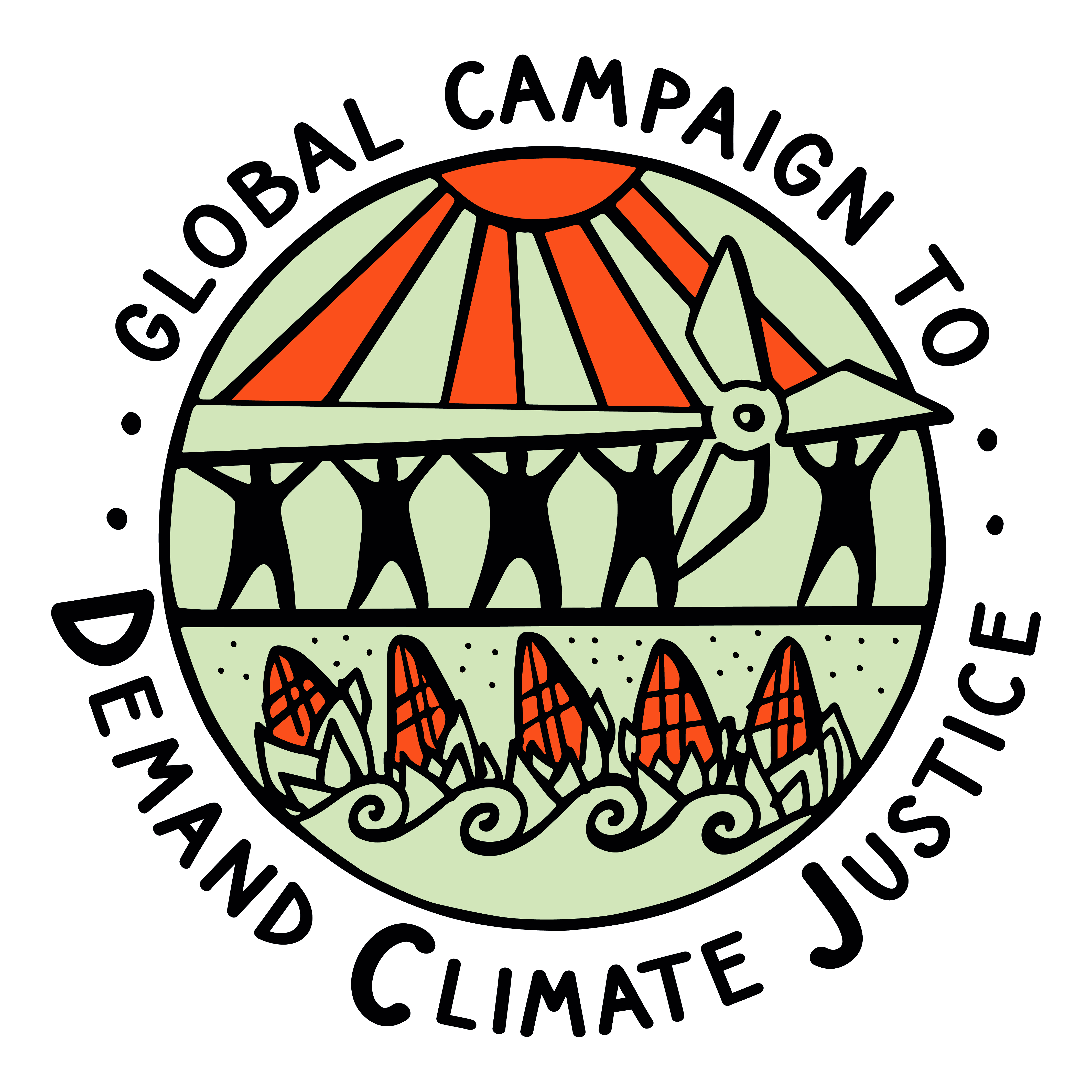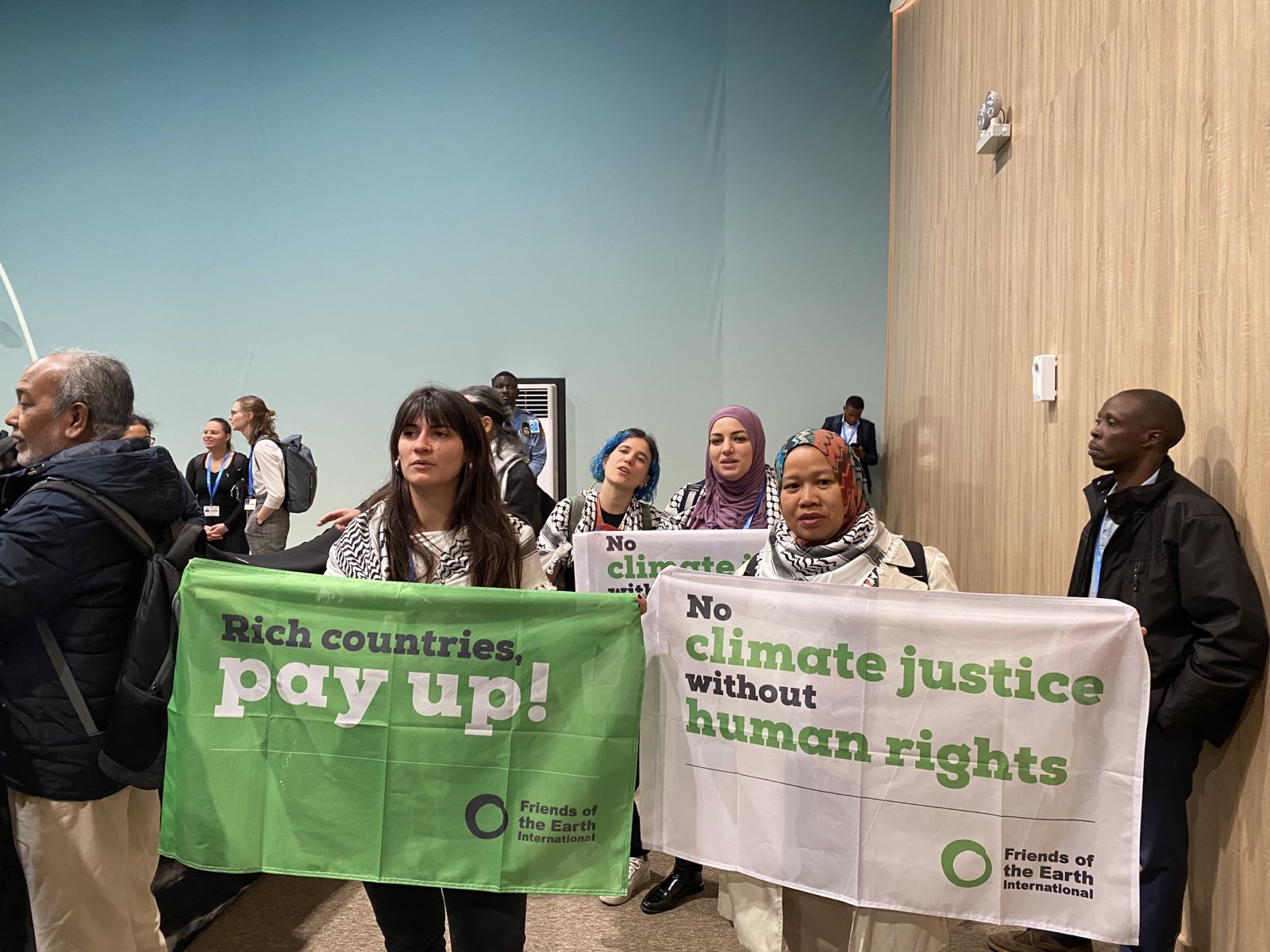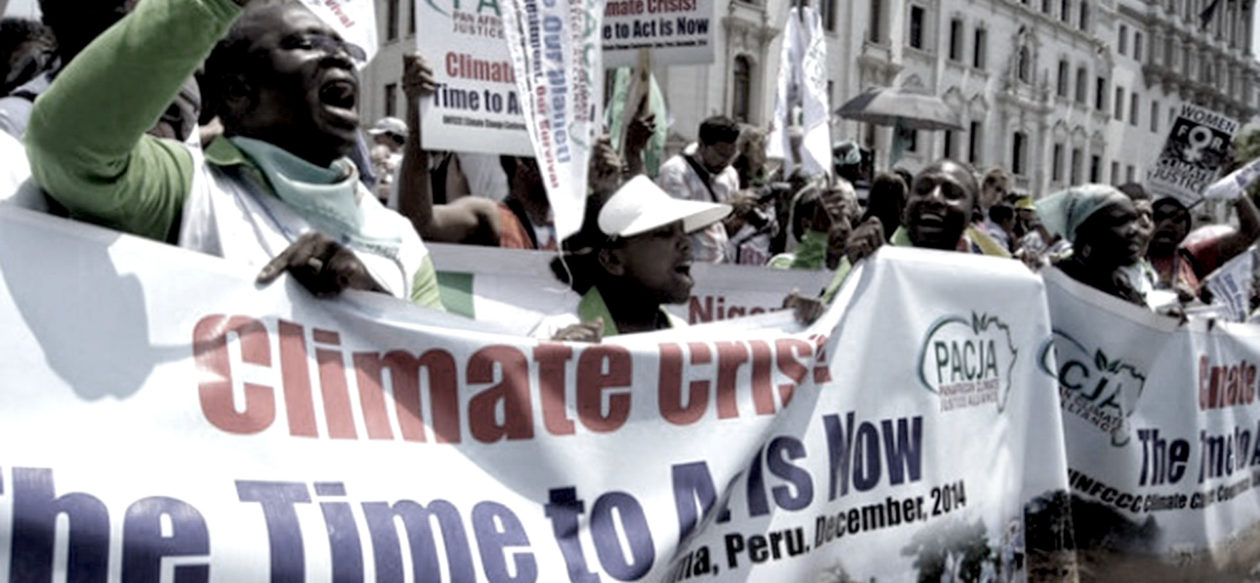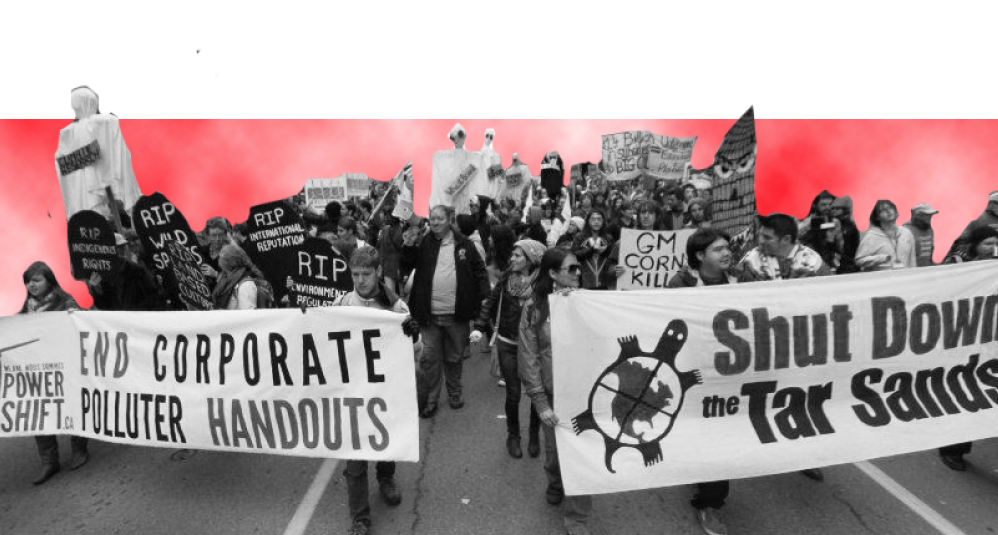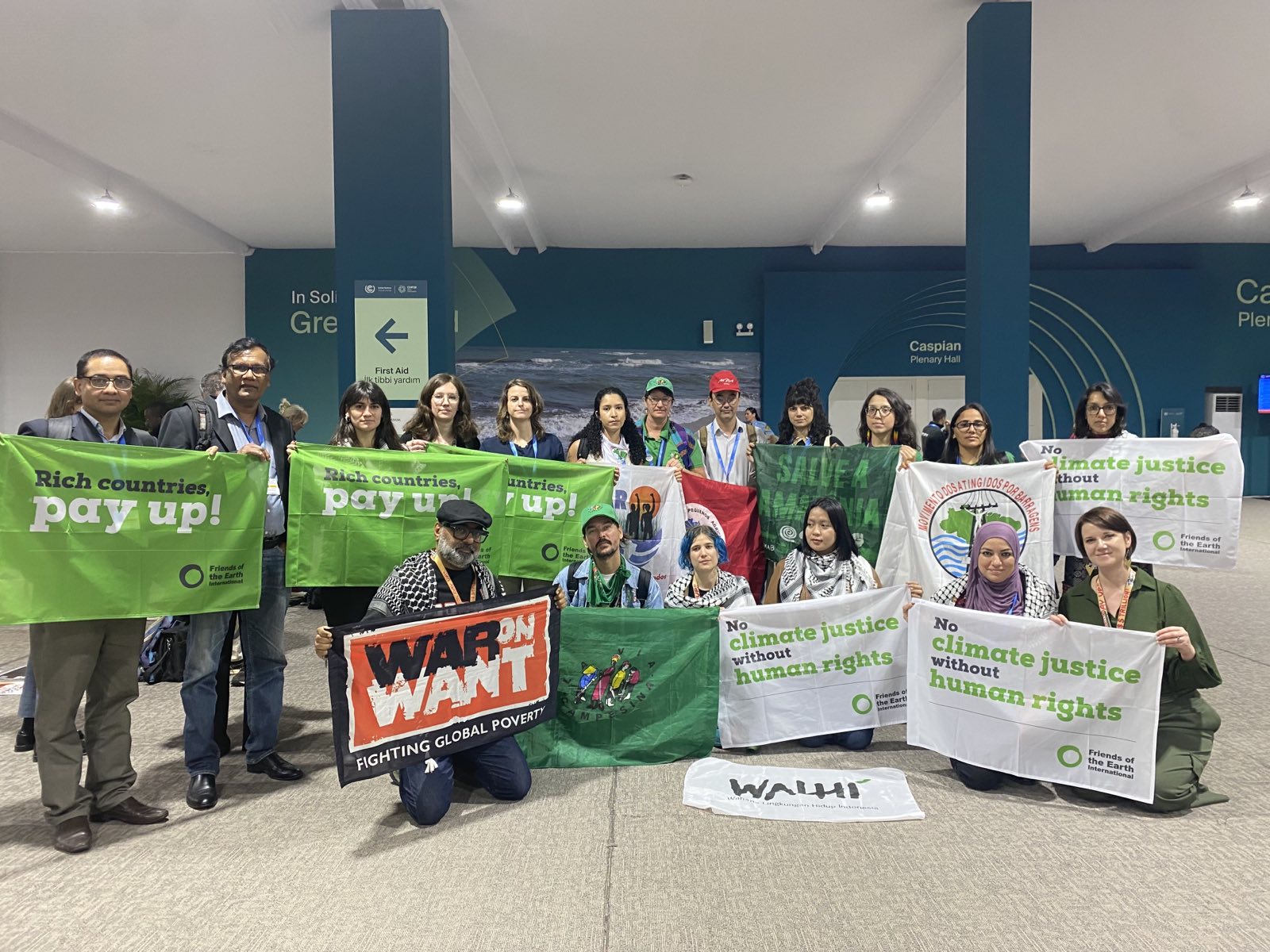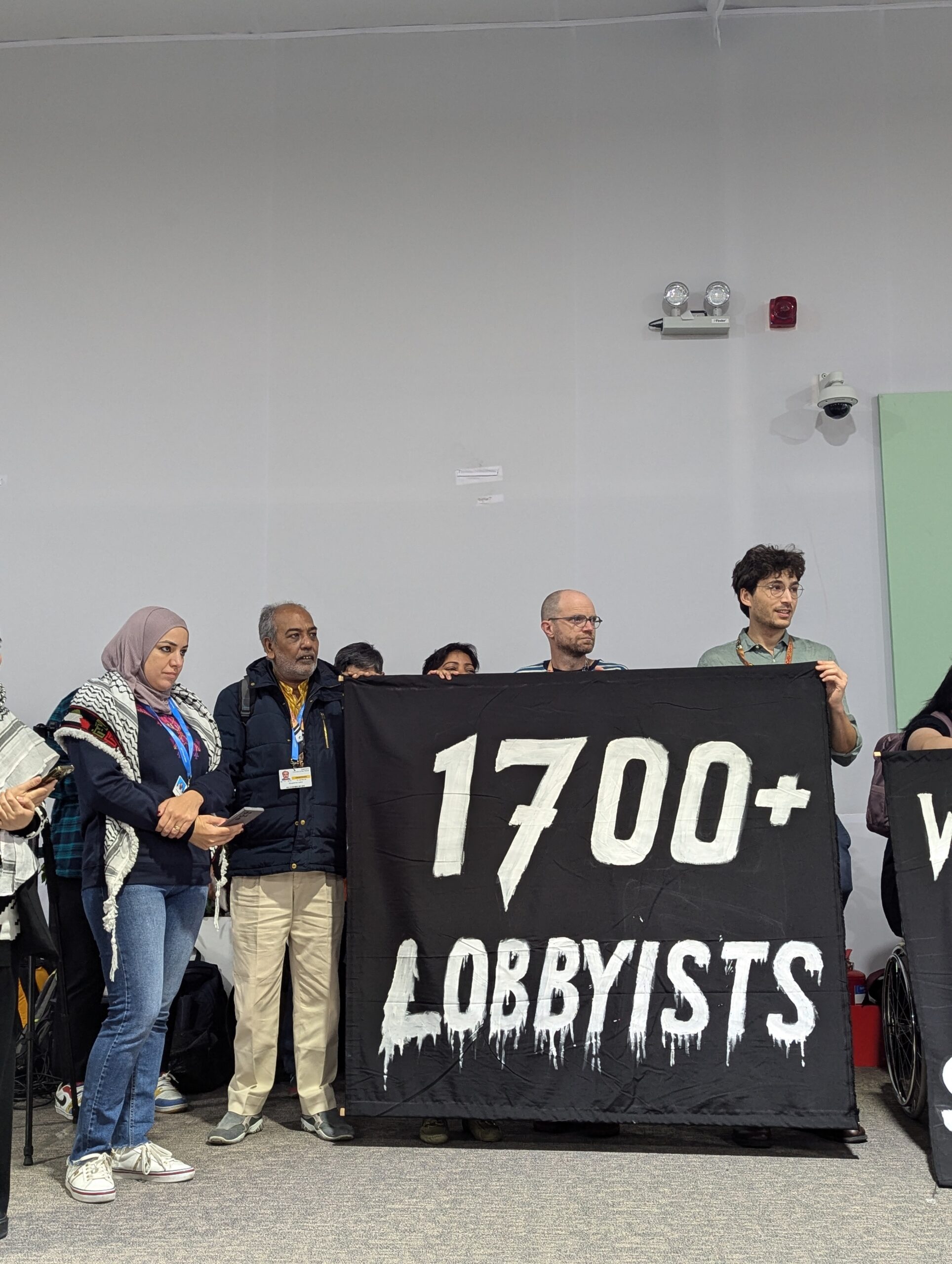BAKU TO BELEM ROADMAP Consultation with non-party stakeholders | 19 June (Joint CAN and DCJ statement, delivered)
The path from Baku to Belém must not become another road paved with broken promises and delayed justice. The demand is clear, and the answer is simple: the Global North must deliver—Fully. Urgently. Unconditionally. And in line with CBDR and equity.
It is not a matter of charity. It is about justice, a matter of reparations to climate debt, of historical responsibility, and of justice.
In Baku, we saw again how this process continues to be manipulated to favor the interests of the Global North, with decisions made abruptly and without transparency or accountability. What should be a matter of justice has been reduced to a mere diplomatic exercise, detached from the urgent realities on the ground. We have to emphasize: this is not about diplomacy, it’s about peoples survival, and survival cannot be negotiated.
The Global North may celebrate the $1.3 trillion per year as a victory—as if it was bold, as if it was historic. IT IS NOT. The scale of climate impacts as shown in the and the documented needs across the Global South—reflected in the Needs Determination Report and lived daily by frontline communities—make clear that this figure is far from enough.
And so, if the number is already gravely inadequate, the quality must not fail too. The Roadmap must not become yet another hollow declaration of intent. We need to know – how will climate finance be delivered? How will developed countries increase their provision of climate finance to contribute to the $300 billion target? On what terms? Through which channels? With what priorities? Because when climate finance comes in the form of loans, creating new debt, when it supports fossil fuel expansion, or when it bypasses the very communities most impacted, it is not climate finance—it is exploitation repackaged as solidarity, injustice disguised as support.
So let’s be honest: the question really is not capacity. It is political will. And if justice is the goal, here is what the Roadmap must deliver::
- Finance for loss and damage must be clearly included in the roadmap part of the roadmap—fully funded, not deferred and be used to allow . The roadmap must not help polluters escape from taking responsibility for the losses and damages they created.
- The roadmap must sketch out how to significantly scale up public grant finance for adaptation such as through tripling adaptation finance by 2030 as suggested by the LDCs.
- No more loans and debt-creating mechanisms. It is time to stop pretending that these are climate support. Climate finance must come through public grants, not financial instruments that entrench dependency and push the Global South deeper into poverty.
- Every public and private institution must immediately pull out of coal, oil, and gas. Continued investment in fossil fuel infrastructure is not just immoral—it is a direct assault on life and the planet.
- The richest individuals and corporations must be taxed. Climate justice is impossible without wealth redistribution, and the global transition must be paid for by those who have profited most from extraction and exploitation.
- Funding war and genocide must end. Slash military budgets. End arms deals. Fund climate justice, not destruction.
- Guarantee direct access for frontline communities. The Roadmap must protect and expand direct access for developing countries, Indigenous Peoples, local communities, and other most affected groups through dedicated, simplified, and decolonized channels.
- Climate finance cannot be left to markets that prioritize profit over people. The Private Sector, MDBs and IFIs must stop imposing conditionalities, pushing loans, and reinforcing colonial power structures. The roadmap must reject models that extract more than they give and instead commit to public, grant-based finance that empowers communities, not creditors.
- Global North governments must present clear, enforceable plans for climate finance delivery, backed by annual targets, transparent mechanisms, and legal accountability. No more vague declarations. No more pledges that vanish after the headlines. It’s time for real delivery, with justice at its core.
The prosperity of the Global North was built on the lands, labor, and suffering of the Global South. That history cannot be erased—and it must not be ignored in the face of a crisis the Global South did not create.
What the Baku to Belem Roadmap must now deliver is not another round of promises. It demands a decisive break from the systems of exploitation that created this crisis. That break begins with the full, timely, and unconditional delivery of climate finance obligations. Anything less is not just insufficient—it is injustice.
